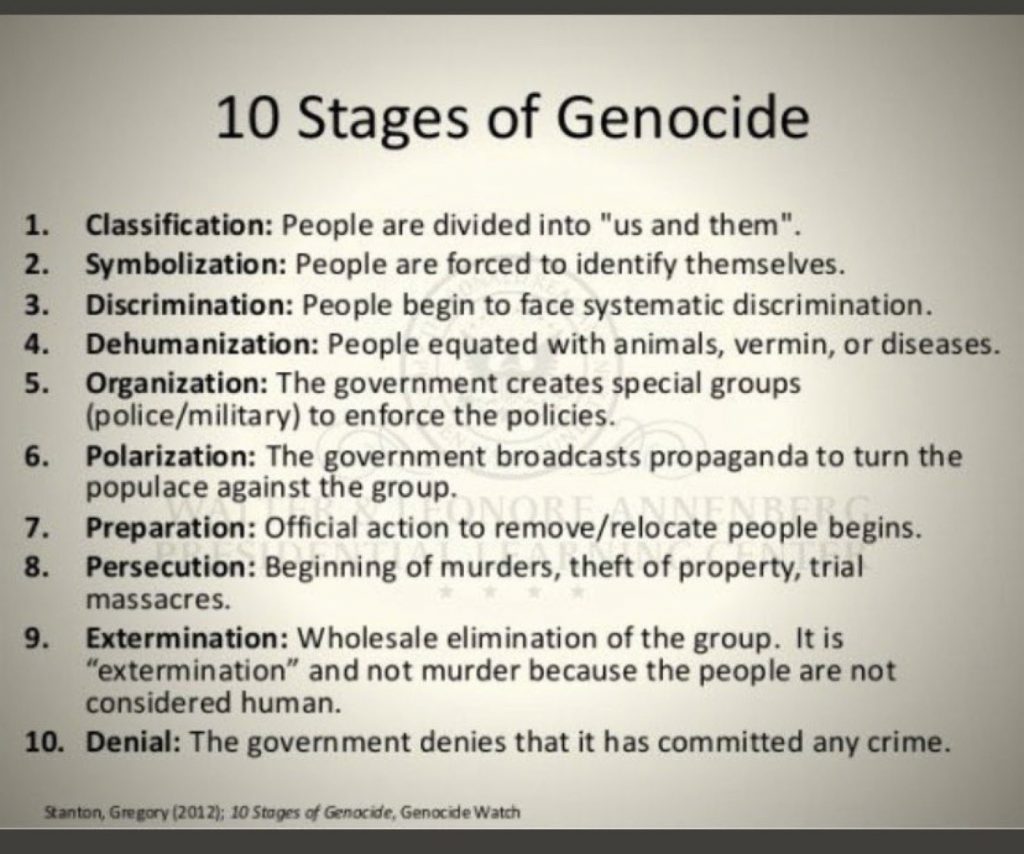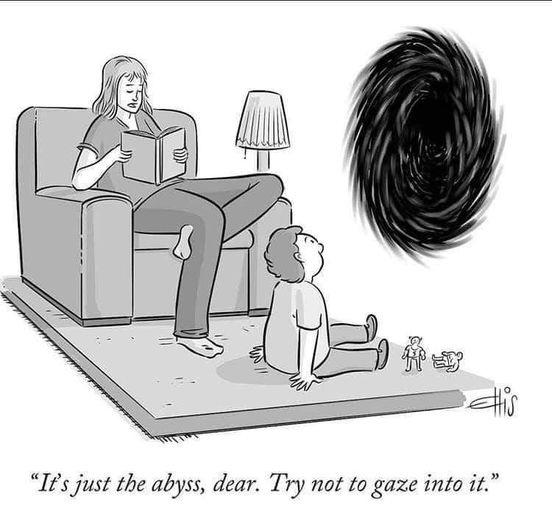[Today is the Feast of Christ The King, which falls on the last Sunday before Advent. It’s a unique holy day for several reasons, and one that I find particularly personally significant. The essay below first appeared at Eternity Road on January 6, 2008. I find that I cannot improve upon it, for which reason I’ve made a habit of reviving it each year on this special day.
Over the years, as I’ve reflected on what I wrote below, I’ve moved ever closer to Clayton Barnett’s sentiments. But where shall we find our Wenceslas, our Canute, our Louis IX, or our Elessar Telcontar? — FWP]
Let’s talk about…Zoroastrianism!
The ancient creed called Zoroastrianism predated the birth of Christ by about a millennium. Its founder, Zoroaster, laid down a small set of doctrines:
- There is one universal and transcendental God, Ahura Mazda, the one uncreated creator and to whom all worship is ultimately directed.
- Ahura Mazda’s creation — evident as asha, truth and order — is the antithesis of chaos, evident as druj, falsehood and disorder. The resulting conflict involves the entire universe, including humanity, which has an active role to play in the conflict.
- Active participation in life through good thoughts, good words and good deeds is necessary to ensure happiness and to keep the chaos at bay. This active participation is a central element in Zoroaster’s concept of free will, and Zoroastrianism rejects all forms of monasticism.
- Ahura Mazda will ultimately prevail, at which point the universe will undergo a cosmic renovation and time will end. In the final renovation, all of creation — even the souls of the dead that were initially banished to “darkness” — will be reunited in Ahura Mazda.
- In Zoroastrian tradition, the malevolent is represented by Angra Mainyu, the “Destructive Principle”, while the benevolent is represented through Ahura Mazda’s Spenta Mainyu, the instrument or “Bounteous Principle” of the act of creation. It is through Spenta Mainyu that Ahura Mazda is immanent in humankind, and through which the Creator interacts with the world. According to Zoroastrian cosmology, in articulating the Ahuna Vairya formula, Ahura Mazda made His ultimate triumph evident to Angra Mainyu.
- As expressions and aspects of Creation, Ahura Mazda emanated seven “sparks”, the Amesha Spentas, “Bounteous Immortals” that are each the hypostasis and representative of one aspect of that Creation. These Amesha Spenta are in turn assisted by a league of lesser principles, the Yazatas, each “Worthy of Worship” and each again a hypostasis of a moral or physical aspect of creation.
I find nothing objectionable in the above, except that only God, by whatever name He might be known, is worthy of worship; the most a lesser being is entitled to is veneration. But the word “worship” has had many meanings and subtleties over the years, so I’m inclined to let it pass. More important than Zoroastrianism’s harmless mythos is its ethos, which Zoroaster himself encapsulated in a unique and memorable command:
Unlike the overwhelming majority of other pre-Christian creeds, Zoroastrianism was — and is — rational, humane, and life-loving rather than life-denying. It emphasized human free will, moral choice, and the need to defend truth and order against lies and chaos. These attributes made it the dominant religion of classical Persia and environs, though Zoroastrians’ numbers are far reduced today.
(No, I haven’t converted to Zoroastrianism. You can all relax.)
In the Western world, the Zoroastrians were the first practitioners of the pseudo-science we call astrology. They reposed a fair amount of confidence in it, for the creed had had its own prophets, beginning with Zoroaster himself, and among the prophecies were several tied to events foretold to happen in the night sky. The Zoroastrians therefore took great interest in the stars, and made careful records of occurrences therein, for comparison to the utterances of their prophets.
One of those prophecies involved the birth of God in mortal flesh.
The Magi of the Incarnation story were three esteemed nobles of Persia, wealthy in gold, wisdom, and the admiration of their societies. In contrast to the pattern prevalent among the nobilities of later times, these three, whose names have come down to us as Caspar, Melchior, and Balthasar, were deeply religious men whose involvement in the investigation of the Zoroastrian prophecies was sincere. When they spied the famous “star in the east” — quite possibly a nova in Draco now known to have occurred at about that time — they resolved to follow its trail, to find the divine infant and pay him homage.
I shan’t retell the whole of the story. It’s accessible to anyone reading this site, in both secular and liturgical versions. The most salient aspect of the story is that these three exalted nobles — kings, in the most common accounts — of a faraway land came to pay homage and present tokens of vassalage to a newborn infant.
Of course! What else would be appropriate, before a King of Kings?
I will pause here to draw an important distinction: “King of Kings” is not the same as “Emperor.” “Emperor” is a title appropriate only to a conqueror; that’s more or less what it means. Atop that, an emperor is not necessarily concerned with justice, whereas a king, of whatever altitude, is obliged to make it the center of his life:
The saber gleamed in the muted light. I’d spent a lot of time and effort sharpening and polishing it.
It was a plain weapon, not one you’d expect to see in the hand of a king. There was only the barest tracing on the faintly curved blade. The guard bell was a plain steel basket, without ornamentation. The hilt was a seven inch length of oak, darkened with age but firm to the touch. There was only a hint of a pommel, a slight swell of the hilt at its very end.
“What is this?”
“A sword. Your sword.”
A hint of alarm compressed his eyes. “What do you expect me to do with it?”
I shrugged. “Whatever you think appropriate. But a king should have a sword. By the way,” I said, “it was first worn by Louis the Ninth of France when he was the Dauphin, though he set it aside for a useless jeweled monstrosity when he ascended the throne.”
Time braked to a stop as confusion spun his thoughts.
“I don’t know how to use it,” he murmured.
“Easily fixed. I do.”
“But why, Malcolm?”
I stepped back, turned a little away from those pleading eyes.
“Like it or not, you’re a king. You don’t know what that means yet. You haven’t a sense for the scope of it. But you must learn. Your life, and the lives of many others, will turn on how well you learn it.” I paused and gathered my forces. “What is a king, Louis?”
He stood there with the sword dangling from his hand. “A ruler. A leader. A warlord.”
“More. All of that, but more. The sword is an ancient symbol for justice. Back when the function of nobility was better understood, a king never sat his throne without his sword to hand. If he was to treat with the envoy of another king, it would be at his side. If he was to dispense justice, it would be across his knees. Why do you suppose that was, Louis?”
He stood silent for a few seconds.
“Symbolic of the force at his command, I guess.”
I shook my head gently.
“Not just symbolic. A true king, whose throne belonged to him by more than the right of inheritance, led his own troops and slew malefactors by his own hand. The sword was a reminder of the privilege of wielding force, but it was there to be used as well.”
His hands clenched and unclenched in time to his thoughts. I knew what they had to be.
“The age of kings is far behind us, Malcolm.”
“It never ended. Men worthy of the role became too few to maintain the institution.”
“And I’m…worthy?”
If he wasn’t, then no worthy man had ever lived, but I couldn’t tell him that.
“There’s a gulf running through the world, Louis. On one side are the commoners, the little men who bear tools, tend their gardens, and keep the world running. On the other are the nobles, who see far and dare much, and sometimes risk all they have, that the realm be preserved and the commoner continue undisturbed in his portion. There’s no shortage of either, except for the highest of the nobles, the men of unbreakable will and moral vision, for whom justice is a commitment deeper than life itself.”
His face had begun to twitch. He’d heard all he could stand to hear, and perhaps more. I decided to cap the pressure.
“Kings have refused their crowns many times, Louis. You might do as much, though it would sadden me to see it. But you could break that sword over your knee, change your name, and run ten thousand miles to hide where no one could know you, and it wouldn’t lessen what you are and were born to be.” I gestured at the sword. “Keep it near you.”[From Chosen One.]
Note further: a mortal king cannot and does not define justice; he dispenses justice, according to principles drawn from a higher authority. The King of Kings, from whom the privilege and obligation to mete justice flows, is the definer. In the matter of Law, all lesser kings are His vassals.
The Magi conceded this explicitly with their gift of gold.
The pre-Christian era knew few, if any, rulers who claimed their jurisdiction solely on basis of might. Nearly all were approved and anointed by a priesthood. In that anointment lay their claim to be dispensers of true justice, for God would not allow a mortal to mete justice that departs from His Law. Let’s leave aside the divergence between theory and practice for the moment; it was the logical connection between Divine Law and human-modulated justice that mattered to the people of those times.
But the King of Kings would need no clerical approval. Indeed, He would be the Priest of Priests: the Authority lesser priests would invoke in anointing lesser kings.
The Magi conceded this explicitly with their gift of frankincense.
We of the Twenty-First Century are largely unaware of the obligations which lay upon the kings of old. They were not, until the waning years of monarchy, sedentary creatures whose lives were a round of indulgences and propitiations. They were expected not merely to judge and pass sentence, but also to lead the armies of the realm when war was upon it. The king was expected to put himself at risk before any of his subjects. Among the reasons was this one: the loss of the king in battle was traditionally grounds for surrender, after which the enemy was forbidden by age-old custom to strike further blows.
The king, in this conception, was both the leader of his legions and a sacrifice for the safety of his subjects, should the need arise. He was expected to embrace the role wholeheartedly, and to lead from the front in full recognition of the worst of the possibilities. Not to do so was an admission that he was unfit for his throne:
“We have talked,” he said, “about all the strategies known to man for dealing with an armed enemy. We have talked about every aspect of deadly conflict. Every moment of every discussion we’ve had to date has been backlit by the consciousness of objectives and costs: attaining the one and constraining the other. And one of the first things we talked about was the importance of insuring that you don’t overpay for what you seek.”
She kept silent and listened.
“What if you can’t, Christine? What if your objective can’t be bought at an acceptable price?”
She pressed her lips together, then said, “You abandon it.”
He smirked. “It’s hard even to say it, I know. But reality is sometimes insensitive to a general’s desires. On those occasions, you must learn how to walk away. And that, my dear, is an art form of its own.”
He straightened up. “Combat occurs within an envelope of conditions. A general doesn’t control all those conditions. If he did, he’d never have to fight. Sometimes, those conditions are so stiff that he’s compelled to fight whether he thinks it wise, or not.”
“What conditions can do that to you?”
His mouth quirked. “Yes, what conditions indeed?”
Oops. Here we go again. “Weather could do it.”
“How?”
“By cutting off your lines of retreat in the face of an invasion.”
“Good. Another.”
“Economics. Once the economy of your country’s been militarized, it runs at a net loss, so you might be forced to fight from an inferior position because you’re running out of resources.”
“Excellent. One more.”
She thought hard. “Superior generalship on the other side?”
He clucked in disapproval. “Does the opponent ever want you to fight?”
“No, sorry. Let me think.”
He waited.
Conditions. Conditions you can’t control. Conditions that…control you.
“Politics. The political leadership won’t accept retreat or surrender until you’ve been so badly mangled that it’s obvious even to an idiot.”
The man Louis Redmond had named the greatest warrior in history began to shudder. It took him some time to quell.
“It’s the general’s worst nightmare,” he whispered. “Kings used to lead their own armies. They used to lead the cavalry’s charge. For a king to send an army to war and remain behind to warm his throne was simply not done. Those that tried it lost their thrones, and some lost their heads — to their own people. It was a useful check on political and military rashness.
“It hasn’t been that way for a long time. Today armies go into the field exclusively at the orders of politicians who remain at home. And politicians are bred to believe that reality is entirely plastic to their wills.”[From On Broken Wings.]
But the King of Kings, intrinsically above all other authorities, would obviously be aware of this obligation. More, His sacrifice of Himself must perforce be for the salvation of the whole of the world — indeed, the whole of the universe and every sentient creature in it. Nothing less could possibly justify it.
The Magi conceded this explicitly with their gift of myrrh.
On the first Sunday after the New Year, Christians celebrate the Feast of the Epiphany, called the Theophany by some eastern Christian sects, when the Magi prostrated themselves before the Christ Child and made their gifts of vassalage to him. A vassal is a noble sworn to fealty to a higher authority: a higher-ranking noble or a king. The obligations of the vassal are to enforce justice as promulgated by the vassal’s liege, and to support and defend the liege’s realm by force of arms as required. To the King of Kings, God made flesh in the miracle of the Incarnation, every temporal authority is properly a vassal, obliged to mete justice in accordance with the natural law and to defend the Liege’s realm — men of good will, wherever they may be — against all enemies, whenever the need might arise. To do less is to be unworthy of a temporal throne, palace, official office, or seat in a legislature…to be unworthy of Him.
He took on the burdens of the flesh to confirm God’s love for Man and to open the gates of salvation. He went to Calvary in testament to the authenticity of His Authority. The Magi knew, and in their pledge of fealty to Him, made plain that He had come not merely to succor Israel, but for the liberation of all Mankind.
May God bless and keep you all.



















